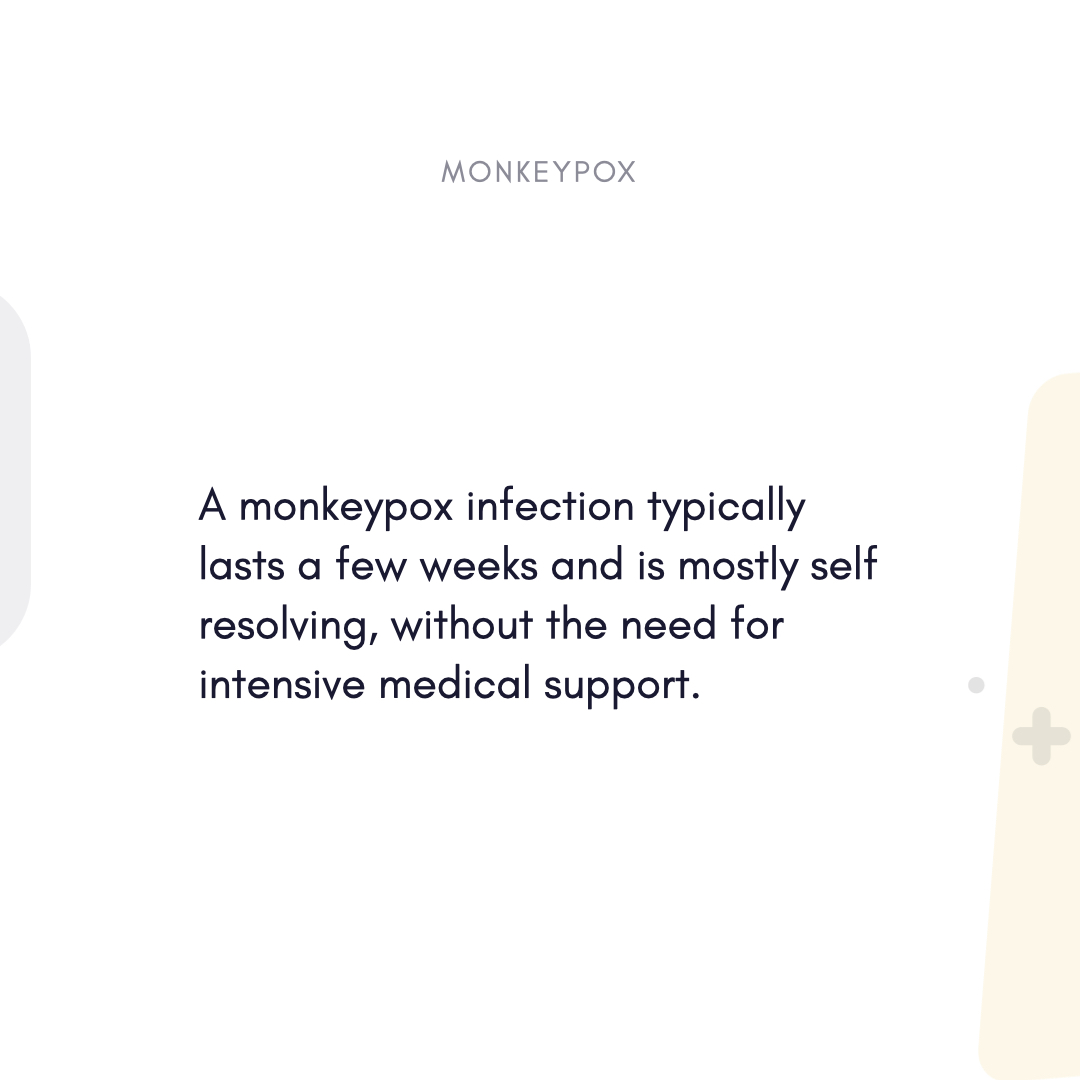



There has been an outbreak of monkeypox in recent months, a rare viral disease attracting attention from healthcare providers around the globe. Individuals need to be aware of how to protect themselves and manage any symptoms as cases continue to rise. The purpose of this article is to explore the benefits of Direct Primary Care (DPC) in managing monkeypox and why it may be a useful solution for patients seeking personalized treatment.
The monkeypox virus belongs to the Orthopoxvirus genus in the family Poxviridae, and it primarily occurs in central and west Africa, but cases have been reported everywhere.

In most cases, monkeypox is contracted from close contact with an infected person or animal, such as through broken skin, respiratory droplets, or contaminated clothing or bedding. Even though the virus isn't highly contagious, prolonged contact with people, sexual activity, or living in the same house can spread it.
Signs and Symptoms:
Fever
Headache
Muscle aches
Back pain
Swollen lymph nodes
Chills
Fatigue
Skin lesions (lesions progress from papules to vesicles to scabs):
Lymphadenopathy (swelling of the lymph nodes) may occur in the initial stages.
The face, extremities, and other parts of the body can develop rashes and lesions

In order to diagnose monkeypox, laboratory tests are used, such as viral culture, polymerase chain reaction, or gene sequencing, as well as clinical symptoms and patient history.
Monkeypox has no specific treatment. Providers might suggest over the counter medication to manage symptoms, including pain relief, fever reduction, wound dressings, and hydration. In severe cases or for high-risk individuals, antiviral medications such as tecovirimat (TPOXX) may be used.
A monkeypox infection typically lasts a few weeks and is mostly self resolving, without the need for intensive medical support. However, it can be more severe in children, pregnant women, immunocompromised individuals, and people with secondary bacterial infections.
JYNNEOS or smallpox vaccination (which offers cross-protection against monkeypox)
Avoiding close contact with infected animals or people
Handling sick animals with good hygiene measures, such as handwashing and wearing gloves
Wearing personal protection during sexual activities if there is a suspicion of exposure
When symptoms arise after traveling to areas with monkeypox outbreaks, monitor travel advisories and seek medical attention promptly.
Providing patients with a more personalized medical treatment is the goal of direct primary care, a healthcare model. Unlike traditional primary care, where patients are often limited to 15-minute appointments with a physician, DPC practices emphasize longer appointments, enhanced communication, and comprehensive care plans tailored to each patient's needs.
Here are some ways DPC providers can assist patients with monkeypox symptoms:
A DPC provider is trained to recognize early signs of monkeypox and can diagnose the disease quickly, enabling prompt treatment.
Each patient's medical history, lifestyle, and preferences are taken into consideration when creating a personalized care plan.
Providing ongoing monitoring and support: DPC providers offer extended appointment times and easy access to healthcare professionals.
As well as providing personalized care, DPC offers several benefits that are particularly beneficial for monkeypox patients:
DPC practices make it easier for patients to access healthcare services when they need them with same-day appointments and extended hours.
As a result of limiting the number of patients each provider sees, DPC physicians can devote more time to each patient, reducing wait times and ensuring that individuals receive quality care as soon as possible.
A sense of trust and partnership can be invaluable when managing a disease such as monkeypox when DPC providers prioritize open communication with their patients.
DPC believes that every patient deserves personalized treatment. When it comes to monkeypox, this approach can make all the difference:
The DPC provides comprehensive education about monkeypox to help patients understand the disease, its transmission, and how to prevent future outbreaks.
DPC physicians monitor their patients regularly to identify any changes in symptoms or condition, enabling early intervention.
DPC providers offer a holistic approach, providing support and guidance throughout the recovery process, recognizing that physical health is connected to emotional and mental well-being.
Personalized healthcare can be a game-changer for patients as we continue to navigate the challenges posed by monkeypox. Individuals can benefit from high-quality, comprehensive care that prioritizes their unique circumstances and needs by embracing Direct Primary Care. "Direct primary care is the antidote to the dysfunction and burnout caused by fee-for-service medicine," said Dr. Lee Aase, co-founder of DPC Frontier. With monkeypox on the rise, now is the ideal time for patients to explore this innovative healthcare model.